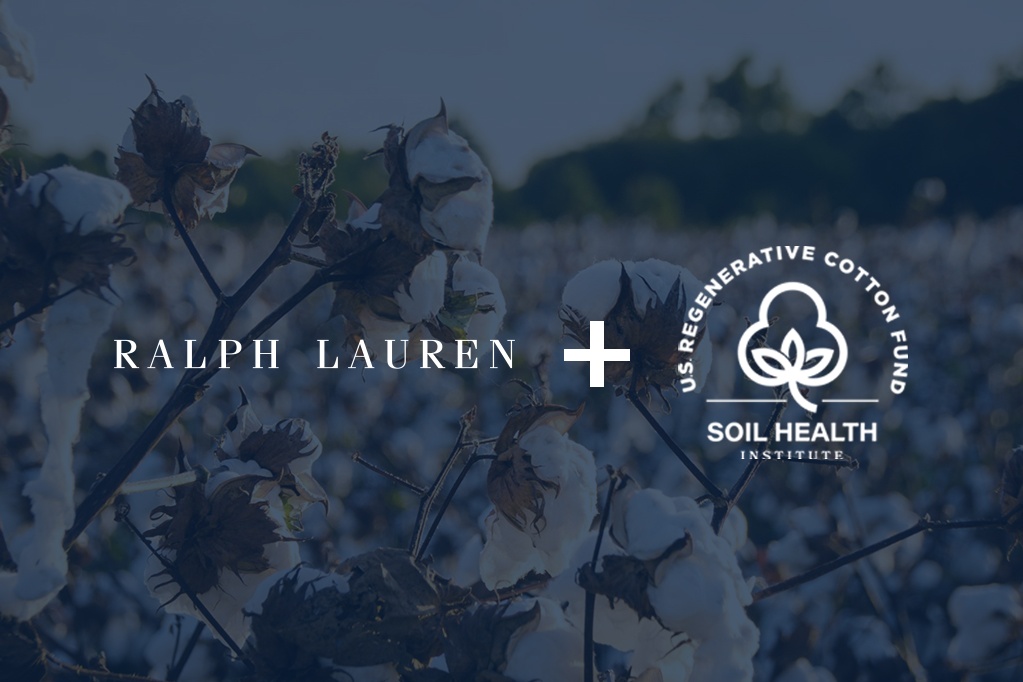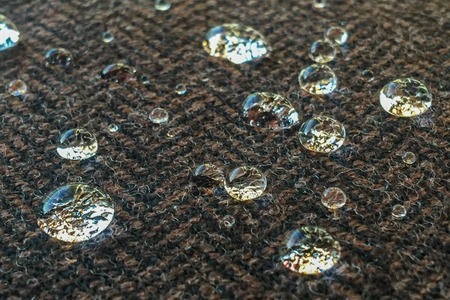
Ralph Lauren launches US regenerative cotton program
YarnsandFibers News Bureau 2021-10-27 11:11:03 – USAThe Ralph Lauren Corporate Foundation and the Soil Health Institute today announced a founding grant to launch the Institute's U.S. Regenerative Cotton Fund (USRCF), a unique, farmer-focused, science-based initiative that will support long-term, sustainable cotton production in the United States, with the goal of removing one million metric tonnes of CO2e from the atmosphere by 2026.
Roseann Lynch, Ralph Lauren Corporation’s Chief People Officer and Head of the Ralph Lauren Corporate Foundation said that at the Ralph Lauren Corporate Foundation, they strive to make the idea of a better life reality by advocating equity and bringing good change to communities all over the world. Partnering to scale solutions that promote community resilience is a powerful way to positively impact people's lives now and in the future. The United States Regenerative Cotton Fund is a bold initiative developed in collaboration with the Soil Health Institute that puts growers at the heart of ensuring the long-term viability of cotton production in the United States.
Dr. Cristine Morgan, Chief Scientific Officer for the Soil Health Institute and leader of the U.S. Regenerative Cotton Fund said that they’re grateful for the opportunity to promote soil health and assist cotton farmers across the United States in storing more carbon, building drought resilience, and mitigating the very effects of climate change that are affecting them all. In order to obtain widespread environmental advantages through regenerative agriculture, they must first understand farmers' needs and experiences with these approaches. Adoption is hindered by a lack of information on the business case, locally relevant soil health education programs, and, until now, knowledge of how healthy a given soil can become and what are means for improving drought resilience, yield stability, economics, and other benefits for farmers.
In cotton production, there is a significant opportunity to boost the adoption of climate-friendly soil health techniques. According to Census of Agriculture data from the United States Department of Agriculture (USDA), just 8% of cotton acreage is managed with cover crops, whereas 21% is maintained with no-tillage. Cotton producers will be able to use regenerative practices like cover cropping and no-till in a way that benefits their operation thanks to the USRCF. Climate change, water quality, and pollinator habitat are all challenges that regenerative farming practises can solve for both customers and the environment. Farmers will be able to develop a long-term value for their enterprises, including higher profitability, thanks to the initiative.
The Ralph Lauren Corporate Foundation has given the USRCF a 5-million-dollar grant. Cotton currently accounts for more than 80% of Ralph Lauren Corporation's overall material usage. Ralph Lauren has committed to sourcing 100% of critical resources, including cotton, sustainably by 2025 as part of its Global Citizenship & Sustainability initiatives.
Ralph Lauren's work to pioneer, promote, and scale sustainable innovation through collaborations and investments, such as its work with Natural Fiber Welding, Inc. and Color on Demand, is complemented by the Foundation's USRCF project. The USRCF will also aim to bring together the interests of farmers, partners, and financial backers around soil health as the foundation for regenerative agriculture. Cotton Incorporated, the National Cotton Council, and Field to Market are among the Fund's participants.
Kater Hake, Vice President of Agricultural and Environmental Research at Cotton Incorporated said that Cotton Incorporated's support of the US Regenerative Cotton Fund, led by the Soil Health Institute, continues Cotton Incorporated's holistic approach and producer focus for achieving the environmental and economic benefits generated by improving soil health.
Dr. Gary Adams, President and CEO of the National Cotton Council and President of the U.S. Cotton Trust Protocol, said that they appreciate seeing this degree of commitment from a U.S. organization like SHI that is focused on delivering benefits to cotton growers. They look forward to collaborating with the SHI Team to improve soil health at scale and make American cotton the world's most regenerative fiber.
The USRCF will begin operations in four states: Arkansas, Texas, Mississippi, and Georgia, with plans to extend to Alabama, North Carolina, Missouri, California, and Oklahoma. These 9 states account for 85% of all cotton output in the United States. Cotton producers will be assisted by the Soil Health Institute in measuring and monitoring the environmental, sociological, and economic benefits of soil health management systems on their operations. Improvements in soil health and carbon sequestration will be monitored through the USRCF using a soil health and soil carbon objectives approach established by the Soil Health Institute.
The USRCF will also work with Historically Black Colleges and Universities (HBCUs), particularly those with agricultural programs, to improve access to career paths in decision-making positions in US agriculture and to establish mentoring programs to help prepare the next generation of agricultural scientists and leaders.
Market Intelligence
Ask for free sample Report

experience
Customer Base
dedicated team
Countries Served Worldwide









